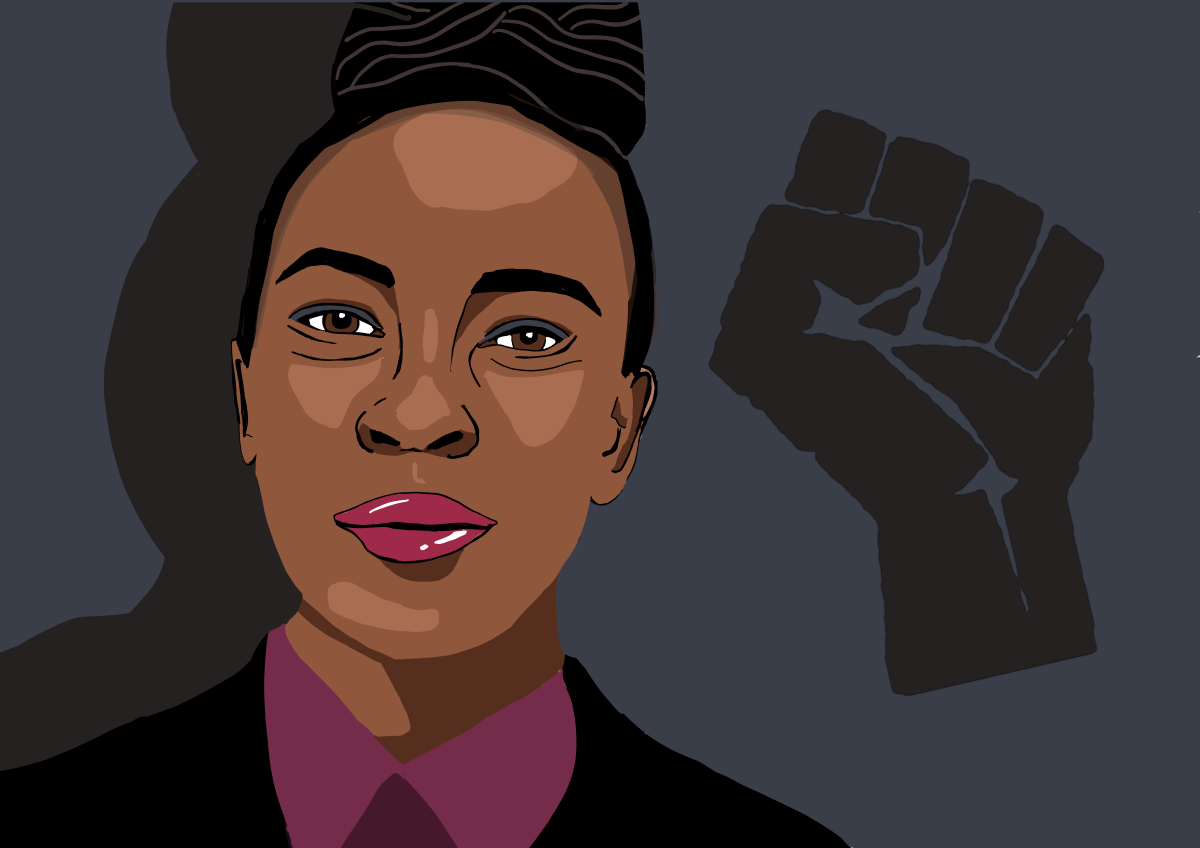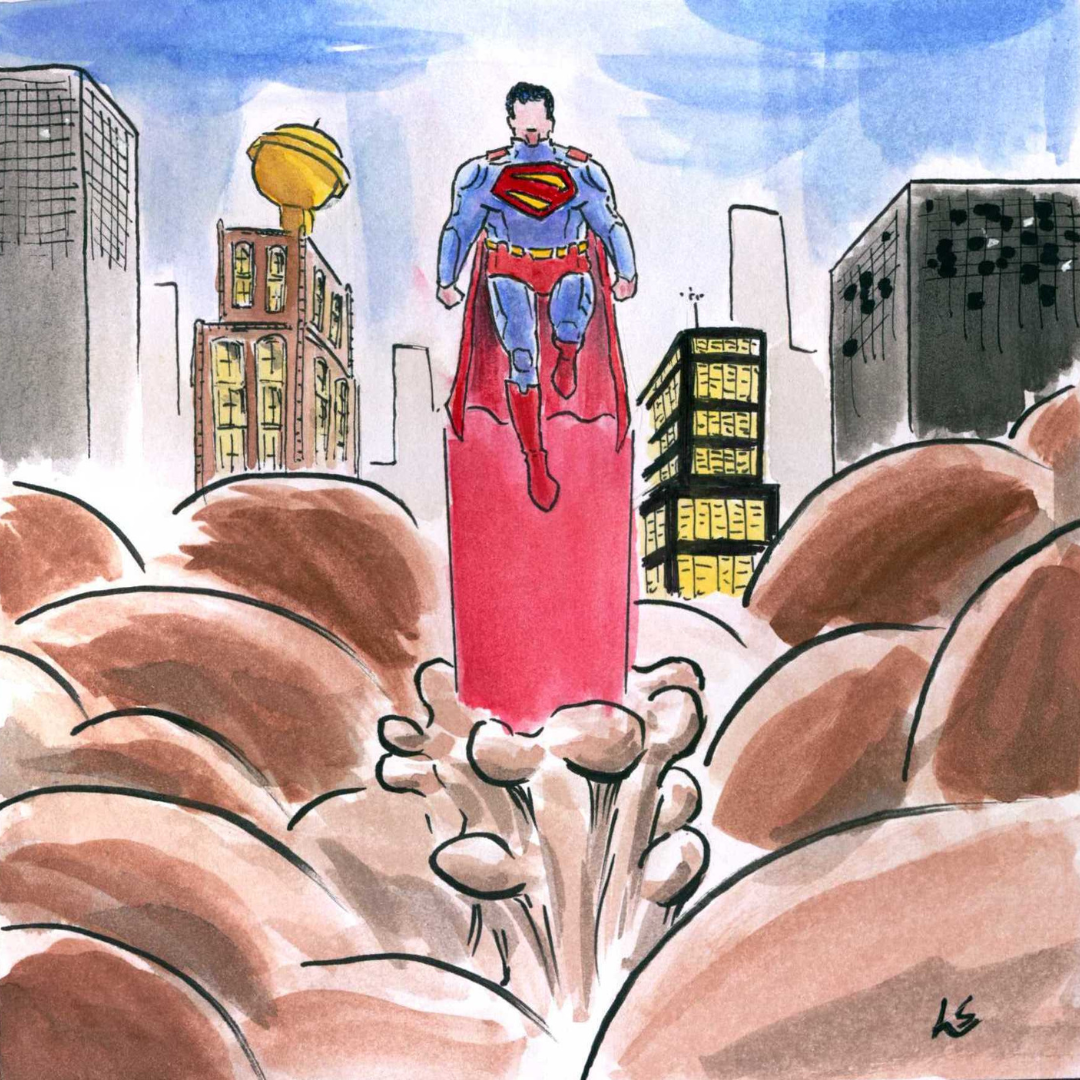Amber Hikes, chief equity & inclusion officer of the American Civil Liberties Union (ACLU), spoke to students, faculty and staff about intersectionality, allyship and creating inclusive communities on campus in a Sept. 24 Zoom event, which kicked off the St. Joe’s 2020 Diversity & Inclusion Speaker Series.
“So much of allyship is in the quiet, unglamorous work of study, of self-education, of better understanding the world around us, the communities that aren’t ours and the experiences we may never have,” Hikes said during the event. “This is core to genuine teachings, and it’s core to our growth and our work as allies.”
This lecture series, sponsored by the Office of Inclusion and Diversity, aims to educate individuals on diversity and promote challenging conversations within the St. Joe’s community. The University Student Senate (USS) co-sponsored the event because of its relevance and ties to the #BeCivil Campaign, launched by USS in fall 2019.
#BeCivil started as a pledge for students, faculty and staff to sign at the forum held last fall to address racial bias incidents. Signing the pledge is a promise to strive to be more inclusive. It has since evolved into a movement aimed at promoting diversity and allyship on campus.
Taylor Stokes ’22, co-founder of the #BeCivil Campaign, secretary of inclusion equity of the USS and president of the Black Student Union (BSU), said she hopes attending this lecture is a first step for many students.
“We’re going to give you tools and principles, but I want this to be [just] the first step for people,” Stokes said.
Stokes said the next step for students could be having their student organization or club participate in a #BeCivil identity workshop, bring in a guest speaker on allyship to their organization’s events or incorporating a diversity pledge into their organization’s bylaws or mission statement.
Hikes said campus leaders can utilize their platforms to be better allies on campus.
“Allyship is engaging your privilege and your power to advance equity and inclusion through intentional, accountable and conscious actions,” Hikes said.
One way to do so is by focusing on intersectionality and understanding who is being represented within an organization. Hikes made the distinction that “intersectionality is the lens through which we can see where power comes and collides.”
Hikes emphasized the need for student leaders to be involved in intersectionality ally work.
“Students have been our North Star,” Hikes said. “Students have, in so many ways, been our collective conscience, and the progress that we are seeing right now, the progress that we will see every day from now on, will be because you all will not let us forget that something better is possible.”
Hikes said that we are living in a time where “it is okay to not be okay,” and that, as active members of society, we should be enraged by the injustices The Movement For Black Lives is fighting against. It is a time for all of us to be doing more to better ourselves, Hikes said.
“I am, as I know so many of us are, experiencing grief and anger and fear right now,” Hikes said. “And so I want to take this moment to acknowledge how many of us are still reeling from the lack of justice, and the murder of Breonna Taylor.”
The event was also interactive. Hikes engaged with the audience by utilizing the chat and polling features on Zoom.
Kelsey Welsh ’22, co-director of campus relations for Women’s Leadership Initiative and publicist for BSU, said she liked Hikes’ exercise that encouraged participants to reflect on their work as allies. Hikes advised everyone to recognize what behaviors they need to practice to become a better ally.
“Going to different events is really important, and definitely a really good first step,” Welsh said. “But it also requires having a conversation with yourself, and saying, ‘Am I actually being an ally? Or am I just showing my face to look like I’m not against this particular group of people?’”
A key point Hikes said to remember is that “allyship is a journey, not a destination.” Hikes said there is always work to be done and it is never finished.
“I feel like a lot of people like to put this title of ‘ally’ on themselves, but you haven’t necessarily earned that title,” Welsh said. “It is a continuous process, not something that you just arrive at.”
It is important for these conversations to start, Hikes said, because they pave the way for future action.
“[Hikes] said at the very end of her talk, ‘There’s no time or space for bystanders anymore,’ which is so true,” Welsh said. “Nobody in this society can afford to just stand by anymore. Everybody has a role to play.”














































